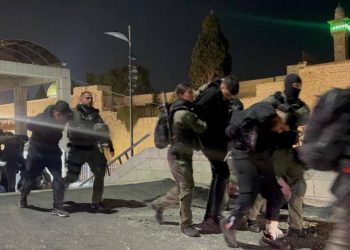Human Lives Human Rights: The United Nations Human Rights Council held a special meeting on Thursday, November 24, with the aim of examining the situation of the recent internal protests in Iran.
The final result of the above meeting led to the formation of a fact-finding committee by the Human Rights Council to investigate the human rights situation of the recent protests.
In this article, an attempt is made to examine the mechanism of the truth-seeking committee and its possible consequences for the Islamic Republic of Iran.
It should be noted that in this article, an interview was conducted with one of the human rights professors of the country’s universities, and this article was prepared based on the same interview.
The members of the fact-finding committee are selected by the then President of the Human Rights Council. According to Federico Villegas, the head of the Human Rights Council, independent people will soon be appointed by him to be members of this committee and start their work. It is also estimated that the approximate time of completion of the work and submission of the final report of the committee is spring 2024. But according to the recent positions of Villegas, while carrying out the mission of the committee, the results of its research can be the basis for the performance of the relevant institutions of the United Nations, regarding the case of the human rights situation of Iran’s internal protests.
The Human Rights Council can choose a special rapporteur for a country, and almost since the establishment of the Council, when there have been widespread and systematic violations of human rights in Iran, it has appointed a special rapporteur for Iran.
Naturally, these reporters have submitted their reports to the Council without the cooperation of Iran. Currently, according to the discussions in Iran and Iran’s non-cooperation, what happened in the Human Rights Council is that a fact-finding committee was formed to deal with the issue of human rights in Iran and study and evaluate the alleged cases of human rights violations and its documentation. It should be noted that so far, only one other example of the formation of a fact-finding committee was formed regarding the case of internal human rights violations in countries, and it was about the killing of Muslims in Myanmar.
With the formation of the fact-finding committee by the council, this committee will finally present its report in the form of a political report and not a legal and executive decision to the Human Rights Council against Iran, which will undoubtedly have a large political, media, moral and public burden on Iran at the international level and will cause political isolation, reduction of economic relations and reduction of cultural relations with Iran at the level of the international system.
However, in one case, the Human Rights Council can request that this situation be presented as a violation of international peace and security both in the General Assembly and the Security Council, and in the General Assembly, naturally, decisions in the form of declarations or resolutions against Iran will be taken, which will again result in a large burden for Iran from the media and public political angle.
Also, based on Article 39 of the charter, threats to peace and violations of peace should be investigated by the Security Council, and the Security Council should make an executive decision based on Article 41 of non-coercive measures or Article 42 of using all means, even coercive measures, in relation to Iran which is very impossible and unlikely, because the draft resolution in the Security Council will definitely be vetoed by the negative vote of Russia and China.
However, the formation of the fact-finding committee, although it does not have consequences for Iran from a legal point of view, but from a political point of view, it will have many consequences for Iran’s international decency and prestige. And from a political point of view, it will question Iran’s international credibility even among its own friends, and it will put Iran in a global political isolation and passivity.
In fact, with the formation of the fact-finding committee, Iran can provide the necessary information regarding the state of human rights compliance with the necessary documents to the fact-finding committee and allow them to investigate inside, which is unlikely that Iran will do such a thing and it seems a difficult task for Iran, because if the members of the fact-finding committee enter, they will finally compile a report against Iran based on the investigation and discussion with the injured families, and as it was said, it is very unlikely that Iran will do such a thing, and it will definitely have political, public opinion, and media consequences for Iran.


















